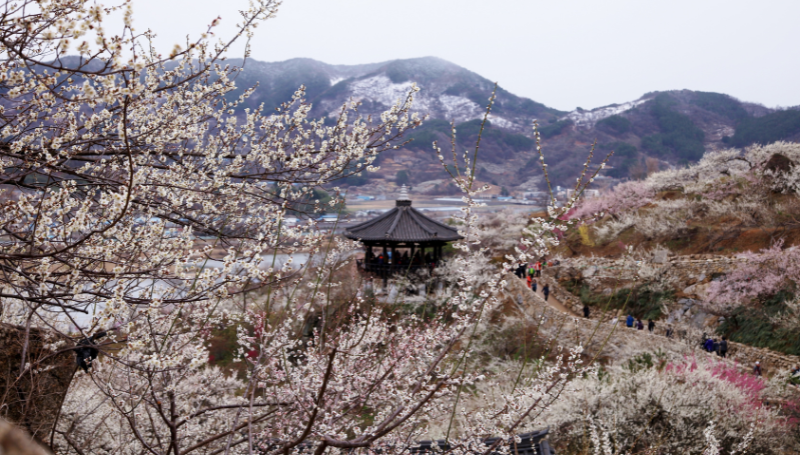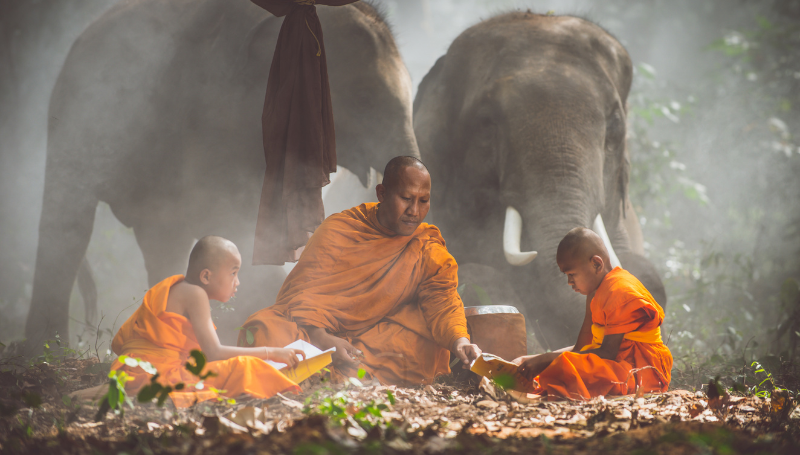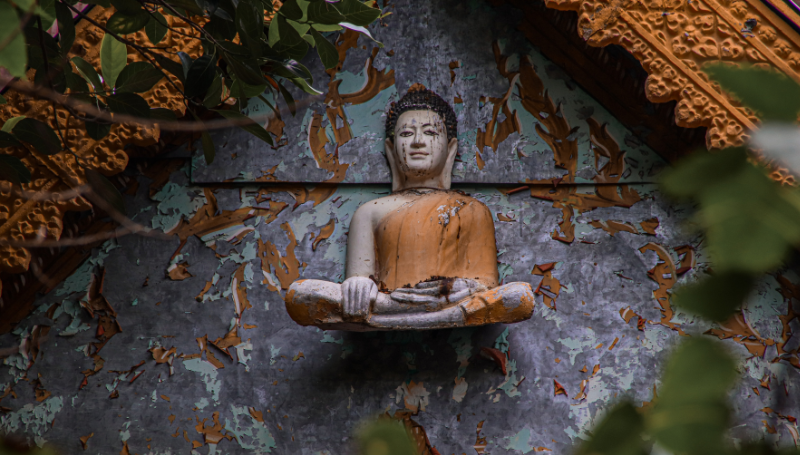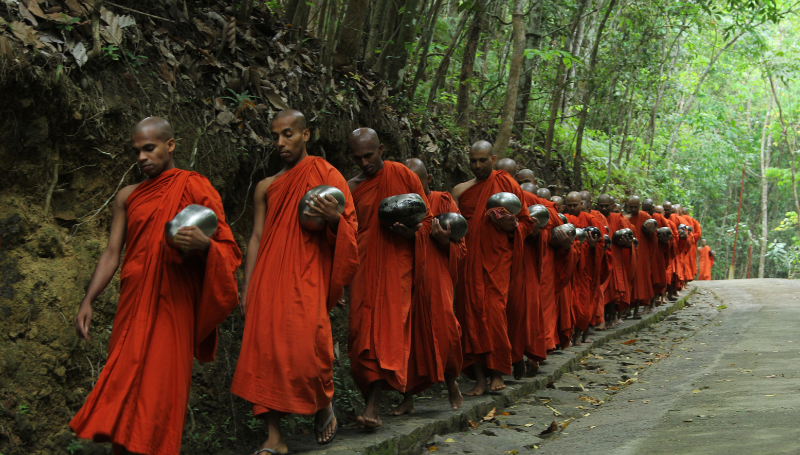Thich Nhat Hanh’s 14 principles of engaged buddism
(Uplift | Azriel Reshel) How to put compassion into action.
Thich Nhat Hanh’s engaged buddism
In the tumult of the mid-60s, a Vietnamese monk formed the Order of Interbeing (Tiep Hien). It was a time of escalating conflict in the Vietnam War and global problems. His country was gripped by hatred, violence and divisiveness and the teachings of the Buddha were sorely needed.
When I was in Vietnam, so many of our villages were being bombed. Along with my monastic brothers and sisters, I had to decide what to do. Should we continue to practice in our monasteries, or should we leave the meditation halls in order to help the people who were suffering under the bombs? After careful reflection, we decided to do both—to go out and help people and to do so in mindfulness. We called it Engaged Buddhism. Mindfulness must be engaged. Once there is seeing, there must be acting… We must be aware of the real problems of the world. Then, with mindfulness, we will know what to do and what not to do to be of help.
On the February full moon of 1966, Thich Nhat Hanh ordained three men and three women into the Order, who vowed to study, practice and observe the Fourteen Precepts of the Order of Interbeing. These six members were the only members for ten years. This provided an amazing mix of traditional Buddhist principles and contemporary social issues, and Engaged Buddhism was born.
Engaged Buddhism is where Buddhist practitioners bring their practice wisdom, and insights from meditation and dharma teachings, into the real world situations of social, political, environmental and economic suffering and injustice. They bring compassion, a peaceful heart and pragmatic solutions to issues out there in the world. While the movement found its roots in Vietnam through well known Zen Buddhist teacher and activist, Thich Nhat Hanh, it has grown in popularity in the West.
The essence of nonviolence is love. Out of love and the willingness to act selflessly, strategies, tactics, and techniques for a nonviolent struggle arise naturally… Other struggles may be fuelled by greed, hatred, fear or ignorance, but a nonviolent one cannot use such blind sources of energy, for they will destroy those involved and also the struggle itself. Nonviolent action, born of the awareness of suffering and nurtured by love, is the most effective way to confront adversity. – Thich Nhat Hanh
You don’t have to be Buddhist to follow these powerful and inspiring principles. They are relevant for anyone who wants to make a positive and sacred impact on the world and wants to live mindfully, and ethically.
BUDDHISTS BRING COMPASSION, A PEACEFUL HEART AND PRAGMATIC SOLUTIONS TO GLOBAL ISSUES.
The fourteen precepts of engaged buddhism
1. Do not be idolatrous about or bound to any doctrine, theory, or ideology, even Buddhist ones. Buddhist systems of thought are guiding means; they are not absolute truth.
2. Do not think the knowledge you presently possess is changeless, absolute truth. Avoid being narrow-minded and bound to present views. Learn and practice non-attachment from views in order to be open to receive others’ viewpoints. Truth is found in life and not merely in conceptual knowledge. Be ready to learn throughout your entire life and to observe reality in yourself and in the world at all times.
3. Do not force others, including children, by any means whatsoever, to adopt your views, whether by authority, threat, money, propaganda, or even education. However, through compassionate dialogue, help others renounce fanaticism and narrowness.
4. Do not avoid contact with suffering or close your eyes before suffering. Do not lose awareness of the existence of suffering in the life of the world. Find ways to be with those who are suffering, including personal contact, visits, images, and sounds. By such means, awaken yourself and others to the reality of suffering in the world.
5. Do not accumulate wealth while millions are hungry. Do not take as the aim of your life fame, profit, wealth, or sensual pleasure. Live simply and share time, energy, and material resources with those who are in need.
6. Do not maintain anger or hatred. Learn to penetrate and transform them when they are still seeds in your consciousness. As soon as they arise, turn your attention to your breath in order to see and understand the nature of your hatred.
7. Do not lose yourself in dispersion and in your surroundings. Practice mindful breathing to come back to what is happening in the present moment. Be in touch with what is wondrous, refreshing, and healing both inside and around you. Plant seeds of joy, peace, and understanding in yourself in order to facilitate the work of transformation in the depths of your consciousness.
8. Do not utter words that can create discord and cause the community to break. Make every effort to reconcile and resolve all conflicts, however small.
9. Do not say untruthful things for the sake of personal interest or to impress people. Do not utter words that cause division and hatred. Do not spread news that you do not know to be certain. Do not criticize or condemn things of which you are not sure. Always speak truthfully and constructively. Have the courage to speak out about situations of injustice, even when doing so may threaten your own safety.
10. Do not use the Buddhist community for personal gain or profit, or transform your community into a political party. A religious community, however, should take a clear stand against oppression and injustice and should strive to change the situation without engaging in partisan conflicts.
11. Do not live with a vocation that is harmful to humans and nature. Do not invest in companies that deprive others of their chance to live. Select a vocation that helps realize your ideal of compassion.
12. Do not kill. Do not let others kill. Find whatever means possible to protect life and prevent war.
13. Possess nothing that should belong to others. Respect the property of others, but prevent others from profiting from human suffering or the suffering of other species on Earth.
14. Do not mistreat your body. Learn to handle it with respect. Do not look on your body as only an instrument. Preserve vital energies (sexual, breath, spirit) for the realization of the Way. (For brothers and sisters who are not monks and nuns) Sexual expression should not take place without love and commitment. In sexual relationships, be aware of future suffering that may be caused. To preserve the happiness of others, respect the rights and commitments of others. Be fully aware of the responsibility of bringing new lives into the world. Meditate on the world into which you are bringing new beings.
The world needs our care, our goodness, and our peaceful action, now more than ever. Caring for our world gives us a purpose and adds meaning to our life. By following principles like these from the heartfelt wisdom of Thich Nhat Hanh, we can become more peaceful and evolve ways of being that are altruistic and honourable. Ultimately we will lead happier and more fulfilling lives when we have a guiding light illuminating the path.
Source: Uplift
You may also like:







